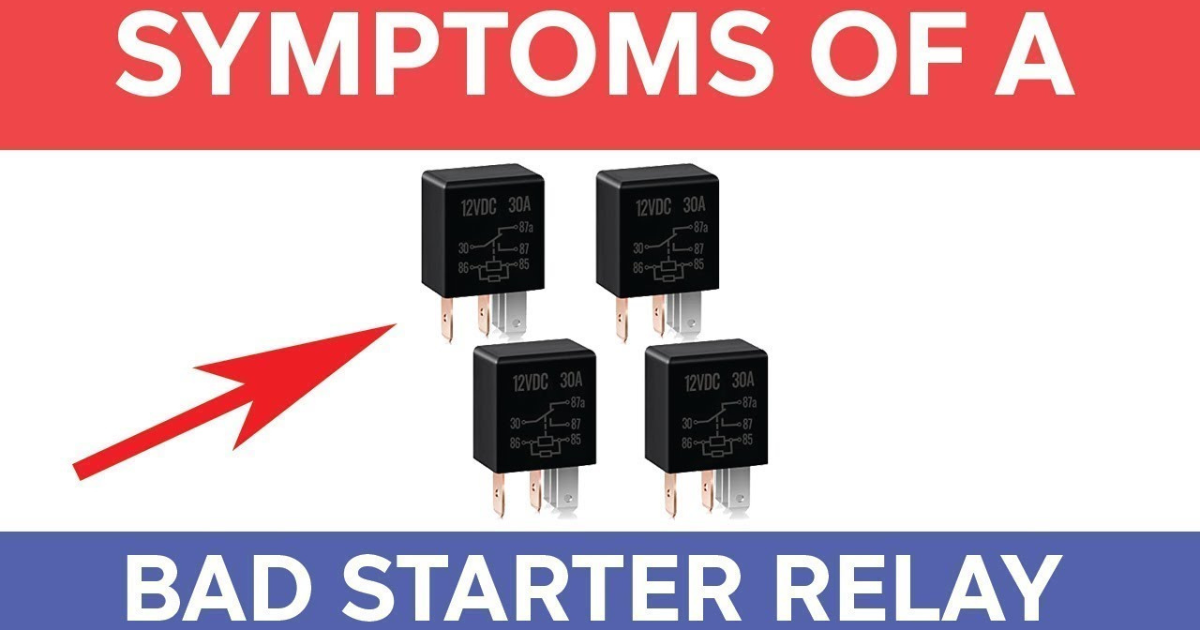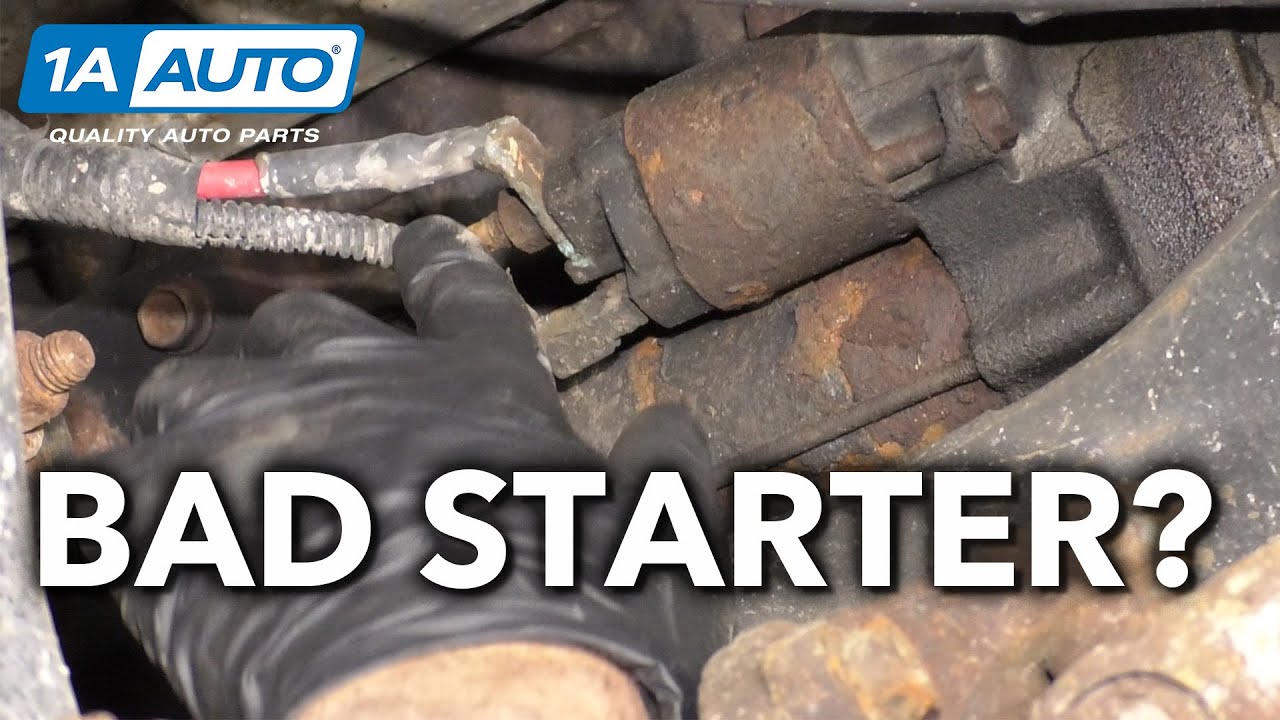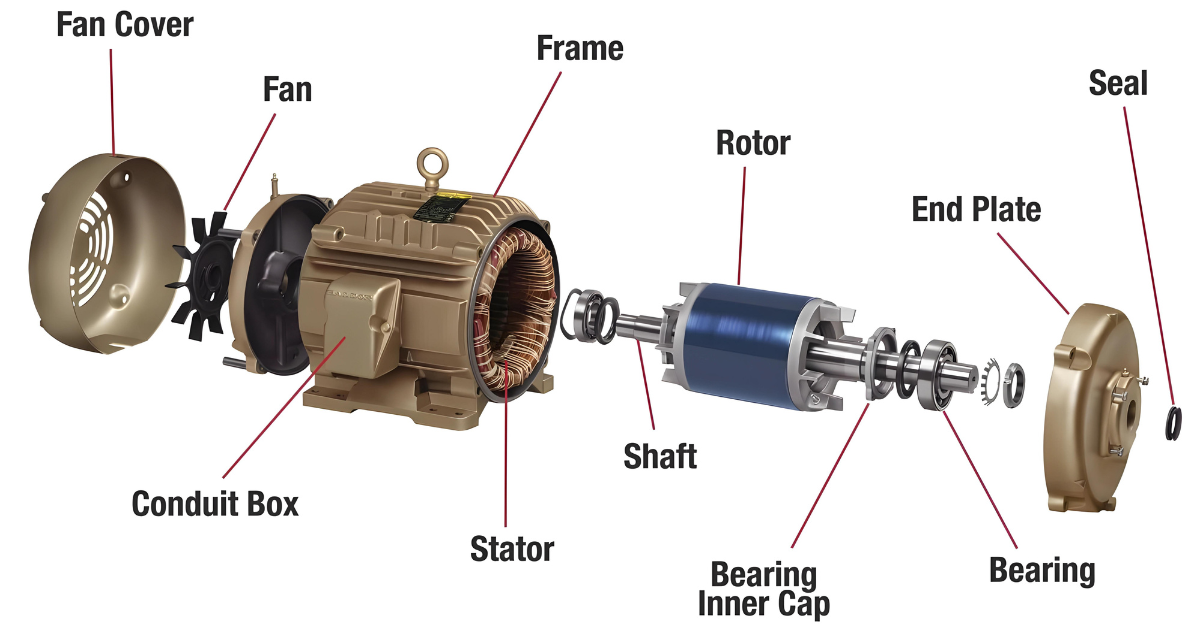How many times have you gotten in your car and wondered why it won’t start? Few things are more annoying than having a car that won’t start in the morning, even though you parked it perfectly the last time you drove it. A dead battery, a broken starter, or a defective alternator are the most common issues with a dead car.
Here, we’ll look at how to fix a car whose starter has already deteriorated, potential starter damage sources, and warning indications that a car starter is failing.
How Does a Starter Motor Work?
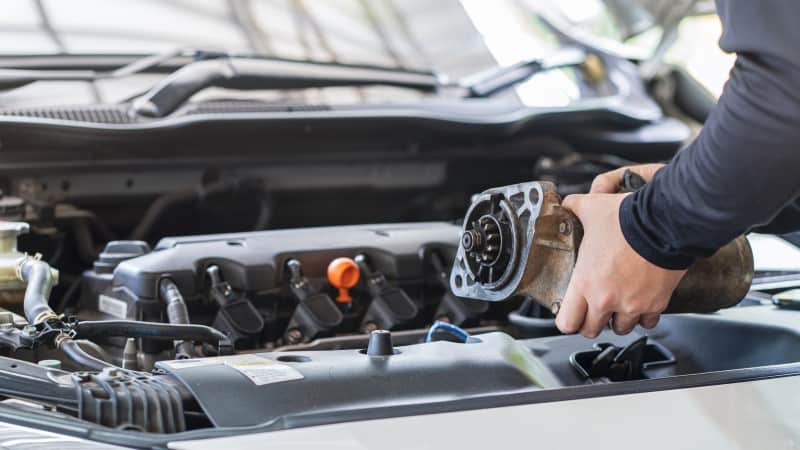
The component of an automobile that turns electrical energy from the battery into mechanical energy by turning the internal combustion engine’s crank to start it from idle is called a starter.
The starting solenoid draws power from the vehicle’s battery whenever the ignition is turned on. The solenoid transfers the energy from the battery to the starter motor. At the same time as it turns on the starter motor, the starter solenoid shifts the starter gear so that it lines up with the flex plate.
Once the starter motor receives power, it turns the engine cranks, which allows the combustion of fuel and oxygen in a proportional mix, and the car starts operating. As a result, the starter is crucial since it allows the vehicle to move.
What are the Most Typical Signs of a Bad Starter?
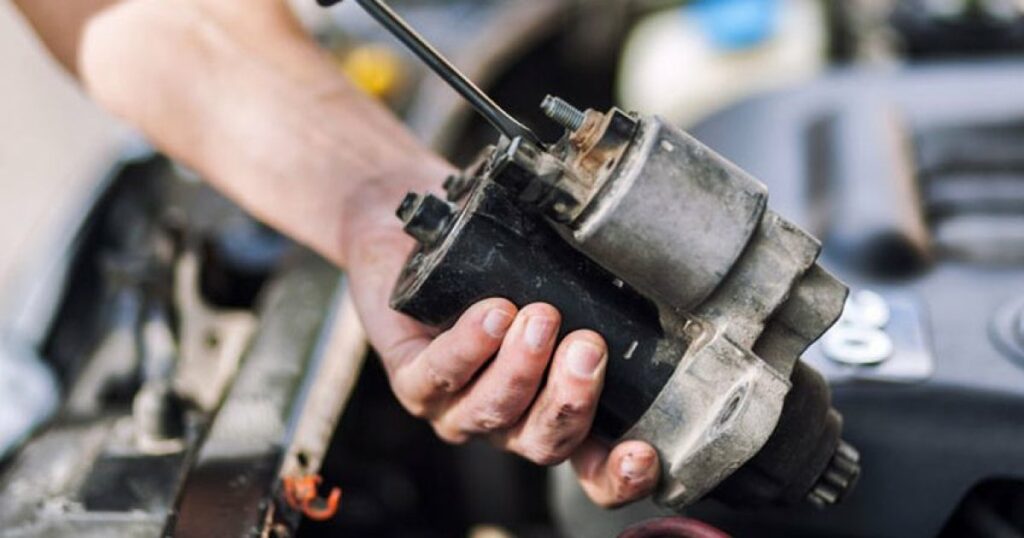
Unexpected failures of starter solenoids and motors are uncommon. So, to find the root of your beginning troubles before they go away entirely, keep an eye out for the following bad starter symptoms regularly.
Mysterious Sound Upon Engine Start-Up
If your automobile makes an odd noise whenever you turn the key or press the start button, it could be a sign of a faulty starter. Some starters can bypass the clicking sounds and proceed directly to the more concerning whirring and grinding noises, which indicate that they have already sustained significant damage.
Unrestrained
When the car won’t start after turning the key and hearing a whining sound, it’s known as freewheeling. Even after using a jumper cable, your car still won’t start certain times. If you have freewheeling, don’t just replace the starter—get your car inspected to determine what other issues may have caused the beginning to fail.
It took Multiple Tries to get the Automobile Started
Symptoms of a worn-out starter motor brush might occasionally cause this issue. These brushes transfer current from the vehicle’s starter’s stationary components to its revolving ones. Therefore, the vehicle’s starting relay process can be impacted by worn-out or damaged brushes that fail to convey sufficient power.
Once the Car is Started, the Starter Stays On
When you turn the key or press the start button to start your automobile, the starter motor will shut off and stop working automatically. If this doesn’t occur and the starter motor stays on after the car’s engine has started, there may be a problem with the starter bendix or the solenoid’s main contacts may be trapped together in the closed position.
Smoke Emission after Starting Car
Short circuits, blown fuses, and other electrical problems are common in the system since they are integral to the vehicle starting process. Due to gasoline’s volatility and the fact that it might explode with even a little ignition, overheating and certain emissions are alarming indicators in a vehicle. At the first sign of this problem, you need to get out of your vehicle and call a professional.
An Oil-Soaked Starter
Do not try to start the vehicle again if you discover that the starter is soaked in oil during the inspection. The starter stopped working because oil poured from a ruptured pipe or hose. Before doing anything further, you must identify and fix the leak’s source.
Signs of a Faulty Solenoid Starter
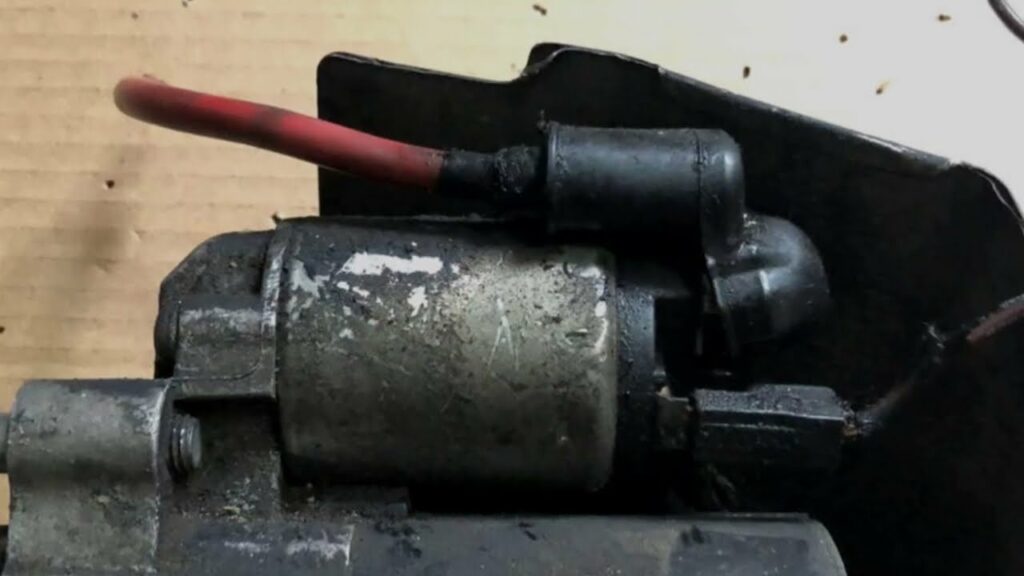
As previously mentioned, the starter solenoid is an essential component of the ignition and starting system of a car. Here are some common symptoms of bad Solenoid Starter.
Recurring Grinding and Clicking
Clicking or grinding noises heard when turning the starter motor with the ignition key on are symptoms of a starter solenoid that isn’t getting or delivering enough power. Solenoid contacts that are welded or worn out are likely to blame. The starter solenoid may not be transmitting enough power due to electrical issues or faulty connections.
Low mechanical force dissipated while cranking and driving the vehicle’s mechanical components is the result of insufficient power. Therefore, when you attempt to start the vehicle, it makes an unusual noise.
Even After Turning Off the Engine, the Starter Remains Turning
A sign of burnt-out contact is this. The surfaces of the contacts melt and fuse due to prolonged exposure to high currents and heat. Continually exposing the entire starter system to extremely high currents, if not handled properly, can cause further harm.
The high current that the solenoid transmits causes its surfaces to melt and mesh together when it is subjected to increasing heat. Consequently, the return spring of the solenoid isn’t elastic enough to detach the motor from the engine.
Even if the Starter Solenoid Clicks, it Won’t Turn the Crank.
Even when the engine turns over when you turn the key, the car won’t start. It can indicate that the connection between the starter motor and solenoid is damaged or broken. Corrosion, grime, or electrical breaks in the starter solenoid are some possible causes.
Conclusion
We have covered the basics of starters: what they are, how they work, the signs that something is wrong, and how to diagnose and repair a faulty starting in your vehicle. To save money in the long run, you should check your starter and fix it as soon as you observe any of the symptoms.

